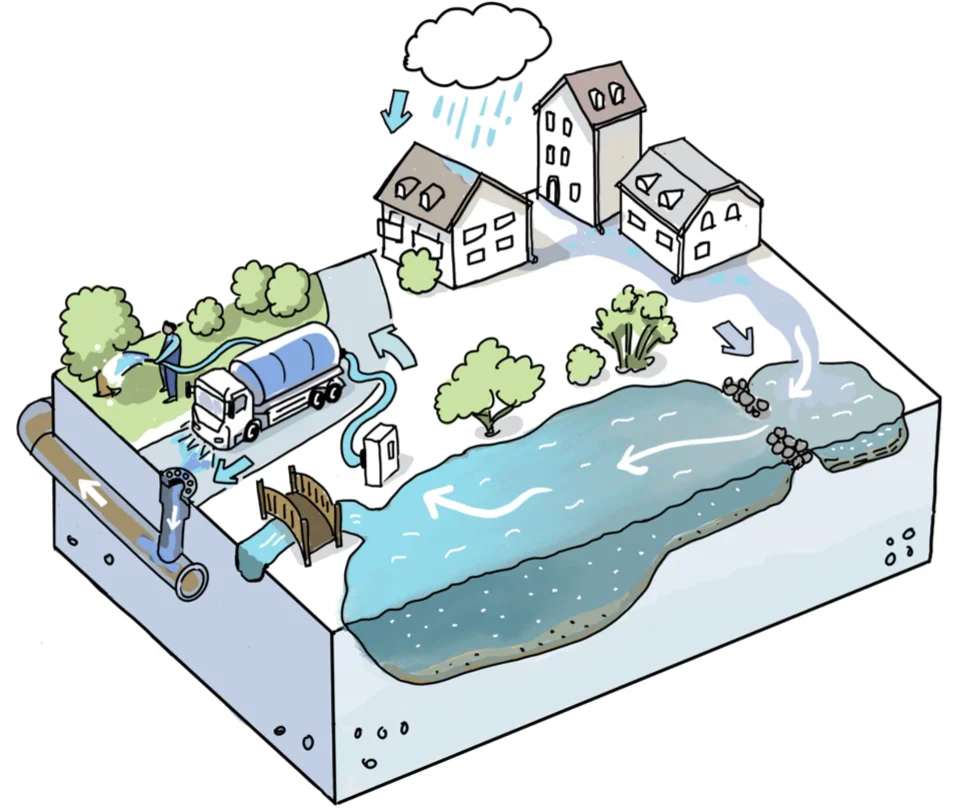Gargždai in Lithuania
The pilot project conducted in the Klaipėda District Municipality in Lithuania aims to create a retention pond that collects and naturally purifies stormwater from a 110-hectare residential area in the town of Gargždai. As the water flows from higher to lower levels, different sedimentation processes occur: large sediments settle in an upstream basin, then the finer sediments settle further down in a main pond, where the further degradation of pollutants takes place. The system therefore requires no additional technical equipment and relies solely on the ecosystem’s inherent water treatment capability.
This water is intended for use for street cleaning and for watering urban green spaces – potentially saving 300 cubic metres of drinking water per year. Further concepts for the utilisation of treated stormwater will be developed in cooperation with representatives of Klaipėda Region municipalities, water companies and other parties interested in new water management ideas. The pond will also create natural habitats, increase biodiversity and provide recreational opportunities.
- Location: Gargždai (Lithuania)
- Water source: Stormwater retention in an artificial pond
- Type of treatment: Natural purification through sedimentation and biodegradation in the pond ecosystem
- Target water quality: Water class D (EU Regulation 2020/741)
- Utilisation: Street cleaning, irrigation of urban green spaces
- Return to natural cycle: Infiltration and discharge into the sewage system
- Responsible: Klaipėda District Municipality, Klaipėda University
- Open for visitors: September 2025
Contacts for further information:
Mindaugas Šatkusmindaugas.satkus@klaipedos-r.lt+370 683 260 83
Valdas Langasvlangas@hotmail.com+370 688 749 25

